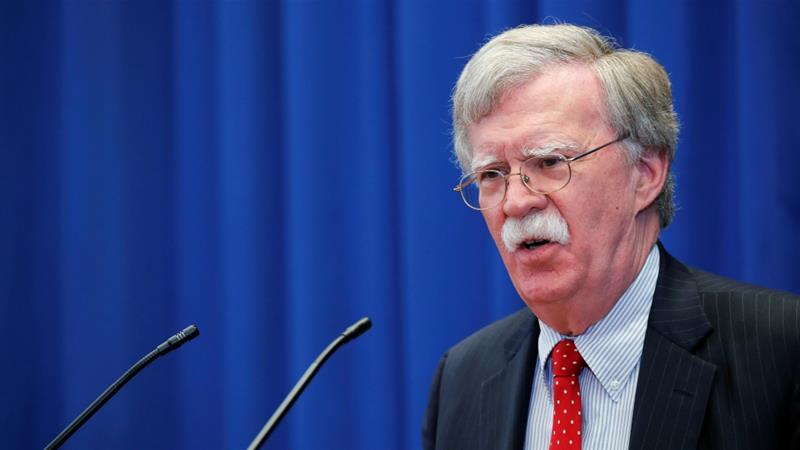‘New African Strategy’ to counter Russia, China
December 16, 2018 | Expert Insights

U.S. National Security Adviser John Bolton accused Russia and China of “predatory practices” in Africa in a speech on Thursday announcing a new American strategy for the continent that will direct American aid to key countries.
Background
US President Donald Trump is a polarising figure in world politics. His administration has also been criticised for being chaotic and controversial. John Bolton has officially taken over the duties as America’s new National Security Advisor. A nationalist and a conservative, Bolton served as the United States Ambassador to the United Nations from August 2005 until December 2006 as a recess appointee by President George W. Bush. With Bolton, Trump has found an aide who enthusiastically advocates a hawkish approach. He has signalled his support for initiating a war against North Korea and Iran.
The United States has demonstrated considerable dedication in promoting economic development in sub-Saharan Africa. America has provided about $51.2 billion (in 2003 dollars) in bilateral official development assistance to sub-Saharan Africa since 1960. Under President George W. Bush, America has doubled its development assistance to $19 billion in 2004, including tripling its assistance to sub-Saharan Africa since 2000. Bolton claimed that the Trump administration is prioritising Africa in a way previous administration's failure to do, emphasising the long-term goal of helping nations in the region become self-sufficient.
Analysis
National security adviser John Bolton unveiled President Donald Trump's Africa strategy on Thursday, outlining a plan that he said focuses heavily on countering China and Russia's expanding influence across the region, while also making sure US taxpayer dollars are spent responsibly with a reduction in US involvement in United Nations peacekeeping missions. Speaking at the conservative Heritage Foundation, Mr. Bolton said that curbing Moscow and Beijing’s growing influence in Africa will be the White House’s top objective in the region.
Bolton emphasised that America's vision for the region is "one of independence, self-reliance, and growth -- not dependency, domination, and debt.” However, the plan is also likely to result in additional cuts to aid and peacekeeping programs.
The Department of State and U.S. Agency for International Development gave about $8.7 billion in aid to African nations in the fiscal year 2017, Bolton said. However, he said “Unfortunately, billions upon billions of U.S. taxpayer dollars have not achieved the desired effects,” according to the remarks. “They have not stopped the scourge of terrorism, radicalism and violence.”
He didn’t identify countries that would see their American support reduced in his prepared remarks, but singled out Mauritania, Niger, Chad, Burkina Faso and Mali for their participation in a joint military force with U.S. support. According to him, it is “a great example of the enormous potential for African joint security cooperation.” Under the new “Prosper Africa” strategy, Mr Bolton said, “we will encourage African leaders to choose high-quality, transparent, inclusive, and sustainable foreign investment projects, including those from the United States.”
“The predatory practices pursued by China and Russia stunt economic growth in Africa, threaten the financial independence of African nations, inhibit opportunities for U.S. investment, interfere with U.S. military operations, and pose a significant threat to U.S. national security interests,” Bolton said, according to the prepared remarks.
Bolton will make clear that the U.S. intends to consolidate aid and investment in nations such as Kenya that has taken positive steps toward governance, and reduce or withdraw assistance to countries that don’t meet governance or anti-corruption standards. He intends to call out South Sudan by name.
Assessment
Our assessment is that the United States will no longer provide blanket assistance across the entire continent. Countries that repeatedly voted against the United States in international forums or even taken counteractions against US interests, may not receive significant American foreign aid. We feel that by focusing more on how well beneficiaries in Africa manage their economy, US hopes to ensure better governance and reduce the strategic leverage that both China and Russia has recently acquired in the continent. We feel that the US will try to capitalise on the growing discontent in Africa over Chinese lending strategies.
India watch
We feel this could be an opportune moment for India as well to further develop its economic and strategic ties in the African continent.








Comments